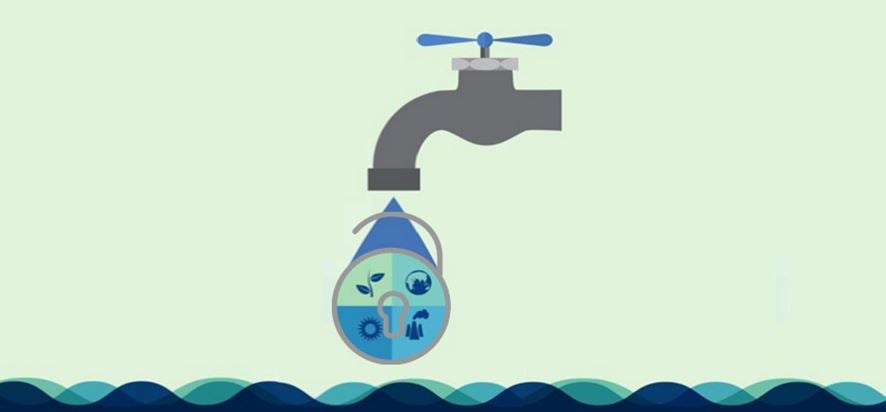2015 marked a milestone in the international agenda following the United Nations’ approval of the 17 Sustainable Development Goals (SDGs). These guidelines set forth specific goals that can be achieved in the next 15 years. One of the established objectives is goal 6, which is to ensure access to water and sanitation for all. Although we have made great progress in the region, significant gaps remain: today there are still 34 million people without access to water, 106 million without adequate sanitation, and 19 million still practice open defecation.
To deal with this challenge, data collection and resource management are vital, both for generating and exchanging knowledge on the subject, as well as for improving the decision-making process, from service users to water company managers.
Below, we share five open iniciatives that help ensure better water and solid waste management.
Management of Water and Sanitation Sevices
1 Akvo
Akvo is an international non-profit foundation that helps improve the management of water and sanitation in rural areas through the development of innovative applications and tools supported by digital technology. With the tools Akvo FLOW and Akvo Caddisfly, they were the winners of the 2015 IDB-FEMSA Water and Sanitation Award for Latin America and the Caribbean in the innovation category.
Akvo FLOW is a mobile phone app and online service that provides an easy, reliable way to collect data on the ground and compile it on a large scale in order to monitor and evaluate infrastructure and service initiatives in the poorest and most remote locations. Meanwhile, Akvo Caddisfly is an inexpensive, open source testing kit that allows for the analysis of drinking water using a smartphone.
2 Hydro-BID
Hydro-BID is a hydrology simulation system for Latin American and the Caribbean. It is a groundbreaking global experience designed to be used by a large number of users: government authorities at all levels, water and sanitation company staff, academics, non-governmental organizations, and the general public.
The tool is able to conduct hydrological simulations (water balance and flow calculation) for a total of more than 230,000 basins delineated and parameterized throughout Latin America and the Caribbean. The system was designed to tackle water issues, particularly in basins for which there is very little hydrological information. It is also very useful for analyzing the effects of infrastructure (e.g. dams, pipelines, roads, irrigation systems for agriculture) on water availability, as well as for planning modifications or new infrastructure.
The system uses open access (free of charge) programs and software components.
If you’d like to learn more, you can download the publication about this initiative (in Spanish) here.
3 Rural Water and Sanitation Information System (SIASAR)
SIASAR is a tool that monitors the coverage, quality and sustainability of rural water and sanitation services.
The system enables the transfer of of statistical data related to water and sanitation, and then exchanges said information with other sectoral databases, for example those related to topics such as health, the environment, social and community development, etc.
The SIASAR system is open and ready for use in countries characterized by low levels of coverage, limited self-sustainability, and little information on water and sanitation.
For more information, you can access the reference publication here.
Solid Waste
4 QuadMinds
Using the “Internet of Things” concept, QuadMinds developed a system that optimizes waste collection, street sweeping and cleaning in the city of Buenos Aires.
Urban waste collectors are tracked with its QuadTracks service, while the Geo-Analytics tool is used to optimize the logistics process. A volume sensor determines the fill level of containers and records when they are emptied in order to create the most efficient collection routes.
5 allGreenup
allGreenup is an educational app that enables the creation of information and analysis of environmental data through user participation in sustainable activities such as recycling.
Users get important information about the environment, while at the same time generating data by recording their recycling actions. As users record their actions, they earn points that can be redeemed for products, discounts or even donations.
On the platform, users can find the locations of 3,500 recycling points in Chile, Argentina, Peru, Mexico and Colombia. The app identifies which waste items can be recycled at each of the points, and users can also share additional insights. By using this crowdsourcing system, you can also view the demographics of which communities recycle more using allGreenup, as well as determine the average amount recycled per person.
Do you know of another open iniciative that promotes the sustainable management of water and solid waste? Add your comment below!
By Sergio I. Campos G., Chief of the Water and Sanitation Division, and Federico Basañes, Manager of the Knowledge and Learning Sector for the Inter-American Development Bank


Leave a Reply